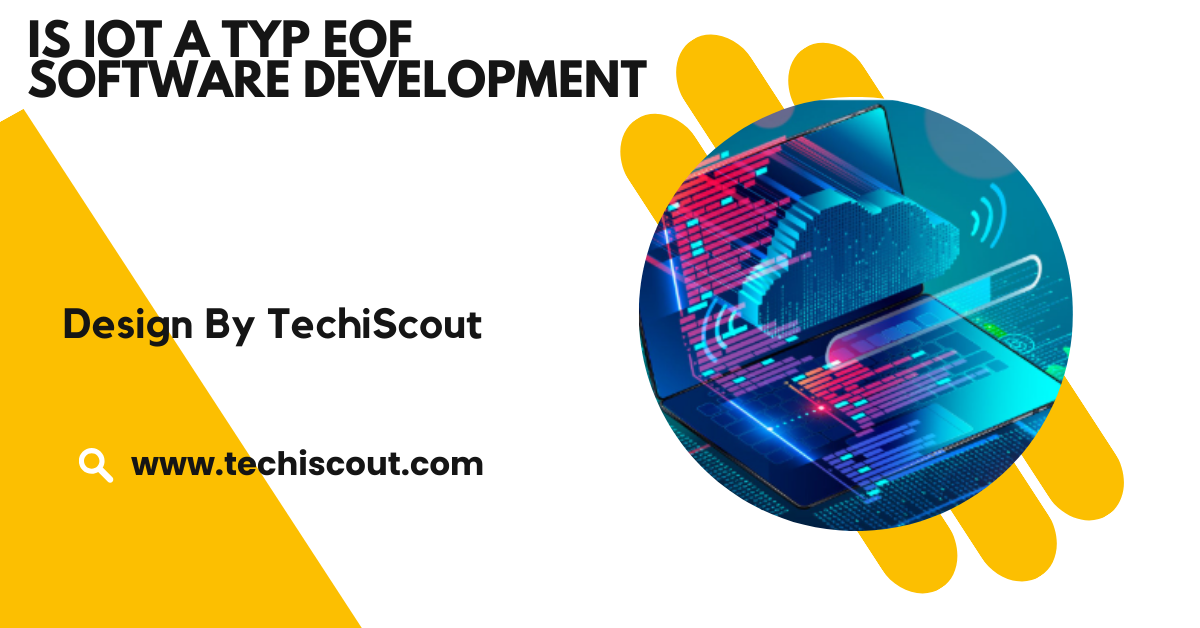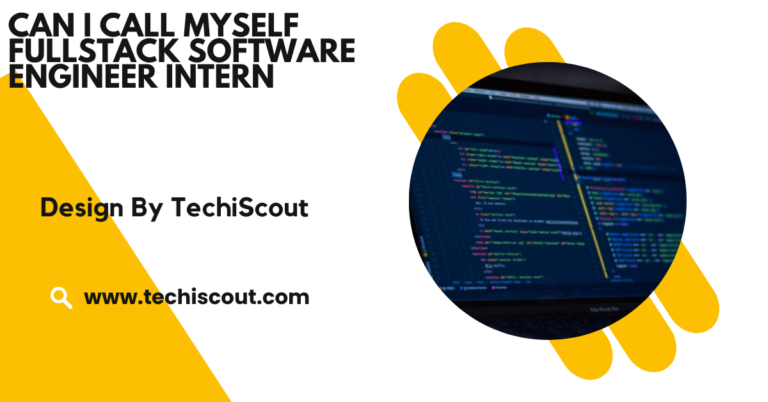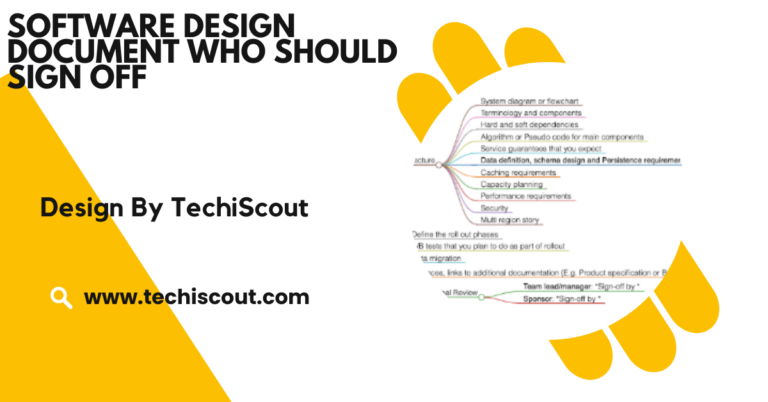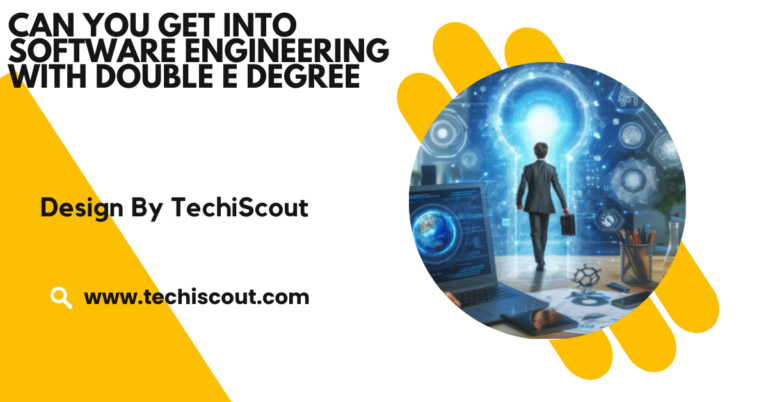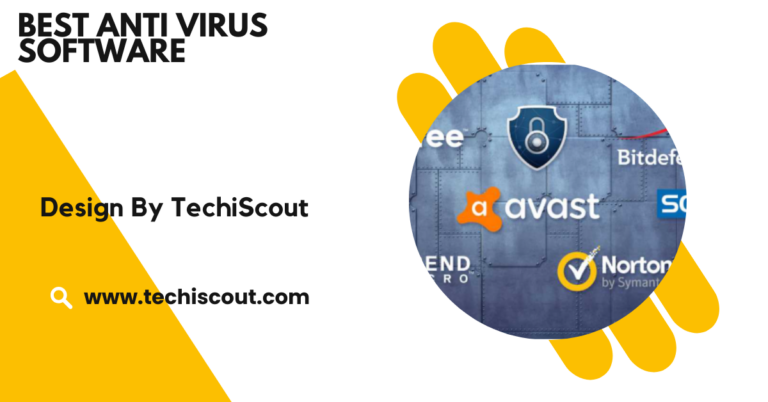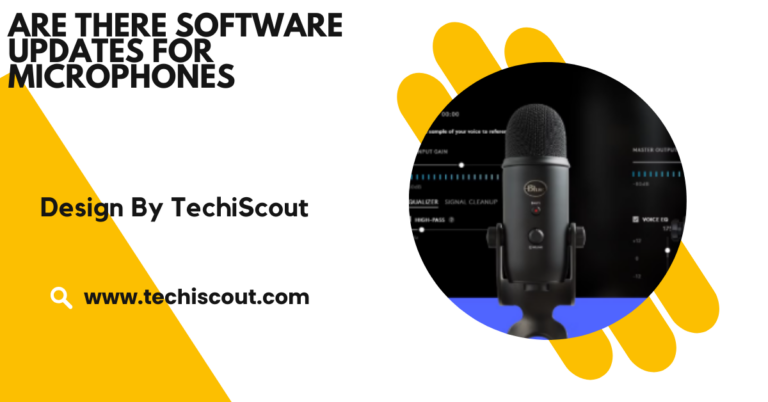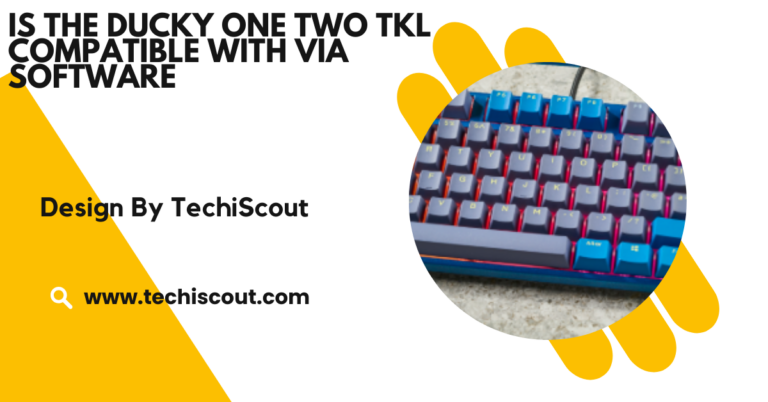Is iot a Typ eof Software Development – A Comprehensive Guide!
No, IoT is not a type of software development, but it heavily relies on software for functionality.
To answer this, we must dive deep into the components, processes, and roles of software in IoT systems.
Table of Contents
What is IoT:
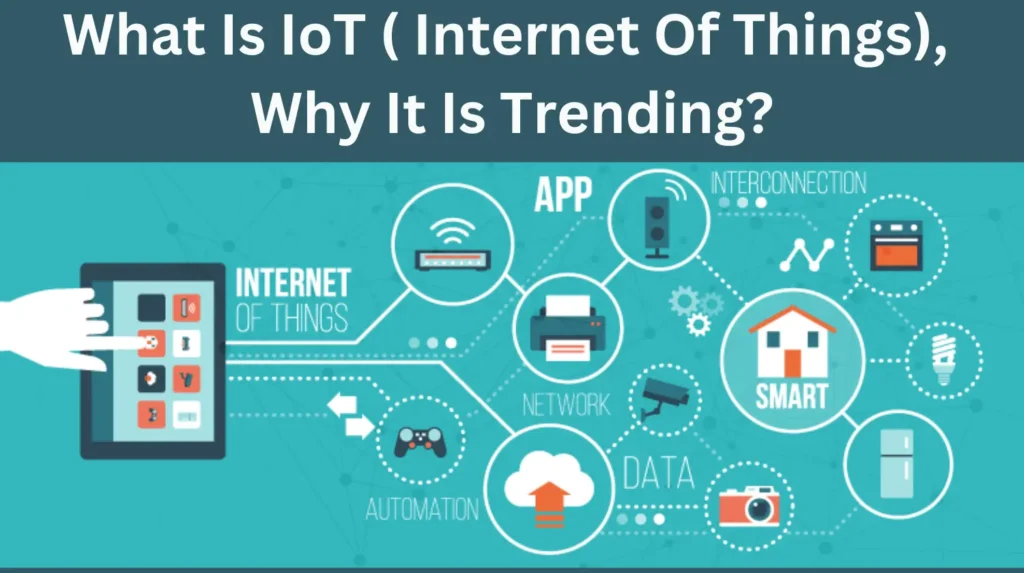
The Internet of Things (IoT) refers to the interconnection of physical devices ranging from household appliances and industrial equipment to wearable gadgets and vehicles via the internet.
These devices are embedded with sensors, software, and communication technologies to collect, process, and share data, enabling intelligent automation and decision-making.
IoT is more than just a collection of smart devices. It’s a dynamic ecosystem that integrates:
- Hardware: Sensors, actuators, microcontrollers, and communication modules.
- Software: Applications, operating systems, and firmware that manage device functionalities.
- Connectivity: Protocols and networks like Wi-Fi, Bluetooth, and cellular data for communication.
- Data Processing: Cloud or edge computing systems for analyzing and storing data.
The Role of Software in IoT:
Although IoT involves a combination of hardware and connectivity, software development is at the heart of IoT functionality. Software enables IoT devices to perform tasks, interact with users, and communicate with other devices. Here’s how software development contributes to the IoT landscape:
Embedded Software Development:
IoT devices rely on embedded software, also known as firmware, to control their hardware components. This software is programmed directly into the device’s microcontroller, enabling it to perform specific tasks, such as:
- Collecting data from sensors
- Sending data to the cloud
- Responding to user commands
Languages like C, C++, and Python are commonly used for developing embedded software due to their ability to work closely with hardware.
Backend Development:
The backend is the backbone of any IoT system. It involves creating server-side applications to manage device connectivity, process data, and enable communication between devices and users. Key components of backend development include:
- Cloud Platforms: Services like AWS IoT, Microsoft Azure IoT Hub, and Google Cloud IoT provide the infrastructure for data storage and management.
- APIs: Application Programming Interfaces (APIs) connect devices, allowing them to communicate with the cloud and third-party applications.
- Database Management: Developers design databases to store and organize IoT-generated data efficiently.
Frontend Development:
Frontend development focuses on creating user interfaces for interacting with IoT systems. These interfaces could be mobile apps, web dashboards, or voice-controlled applications.
Developers use technologies like HTML, CSS, JavaScript, and frameworks like React or Angular to design intuitive user experiences.
Data Analytics and Machine Learning:
IoT generates vast amounts of data, often referred to as “big data.” Advanced analytics and machine learning algorithms process this data to:
- Detect patterns
- Predict trends
- Automate decision-making
Software developers specializing in data science and AI play a crucial role in extracting value from IoT data.
Security in IoT:
As IoT devices exchange sensitive information, security is paramount. Software developers implement encryption, authentication protocols, and intrusion detection systems to protect IoT systems from cyber threats.
Is IoT a Type of Software Development:
IoT is not strictly a type of software development, but software development is an integral part of IoT. While IoT involves hardware, networking, and sensors, software connects these elements into a cohesive system.
Without software, IoT devices would lack the intelligence and functionality that define them.
The relationship between IoT and software development is symbiotic:
- Hardware collects data, and software processes it.
- Connectivity enables communication, and software interprets the data.
- Machine learning algorithms analyze data, and software executes actions.
This integration makes IoT a multidisciplinary field where software development serves as the driving force behind its innovations.
Read More: iCUE Software
Career Opportunities in IoT Software Development:
The rapid growth of the Internet of Things (IoT) has revolutionized industries, creating an increased demand for talented professionals in software development.Below is an in-depth look at the top career opportunities in IoT software development:
IoT Software Engineer:
An IoT Software Engineer is responsible for designing and implementing software solutions that make IoT devices functional and efficient. Their work involves:
- Developing applications that enable devices to interact with users and other systems.
- Integrating hardware and software components to ensure seamless operation.
- Collaborating with hardware engineers to optimize device performance.
Skills Required: Proficiency in programming languages like Python, Java, or C++, knowledge of IoT protocols, and experience with cloud platforms.
Embedded Systems Developer:
An Embedded Systems Developer focuses on creating the firmware and low-level software that directly controls IoT hardware. This role involves:
- Writing code for microcontrollers and processors embedded within devices.
- Ensuring efficient interaction between sensors, actuators, and the system’s core functionality.
- Debugging and optimizing firmware to enhance performance and power efficiency.
Skills Required: Expertise in C/C++, assembly language, and real-time operating systems (RTOS).
Cloud Developer for IoT:
A Cloud Developer for IoT specializes in building cloud platforms that support IoT ecosystems. They handle:
- Developing APIs to enable communication between devices and cloud servers.
- Designing scalable systems for storing and managing large volumes of IoT-generated data.
- Implementing analytics tools to process and visualize data in real-time.
Skills Required: Proficiency in cloud technologies like AWS IoT, Microsoft Azure IoT, Google Cloud IoT, and knowledge of RESTful APIs.
IoT Security Specialist:
An IoT Security Specialist ensures the safety and integrity of IoT networks by addressing potential vulnerabilities. Their responsibilities include:
- Developing secure coding practices to prevent unauthorized access and cyberattacks.
- Implementing encryption, authentication protocols, and intrusion detection systems.
- Conducting risk assessments and penetration testing to identify and mitigate security risks.
Skills Required: Expertise in cybersecurity, familiarity with IoT security standards, and knowledge of encryption techniques.
Data Scientist for IoT:
A Data Scientist for IoT leverages machine learning and predictive analytics to derive actionable insights from the vast data generated by IoT devices. Their work includes:
- Building algorithms to detect patterns and trends in IoT data.
- Developing predictive models to enhance decision-making and automation.
- Collaborating with engineers to refine data collection and processing systems.
Skills Required: Strong analytical skills, proficiency in data visualization tools, and expertise in machine learning frameworks like TensorFlow or PyTorch.
Challenges in IoT Software Development:
While IoT offers immense opportunities, it also presents unique challenges for software developers:
- Interoperability: Ensuring compatibility between devices from different manufacturers.
- Scalability: Managing large-scale IoT networks with thousands of devices.
- Security Risks: Protecting IoT systems from hacking and data breaches.
- Real-Time Processing: Developing software that processes data with minimal latency.
FAQ’s:
1.Is IoT a type of software development?
No, IoT is not solely software development but relies heavily on it for functionality and communication.
2.What role does software play in IoT?
Software enables data processing, device communication, and user interaction in IoT systems through embedded programs, backend platforms, and interfaces.
3.What programming languages are used in IoT development?
Popular languages include Python, C++, Java, and JavaScript for various aspects of IoT development.
4.What are the main challenges in IoT software development?
Key challenges include ensuring security, scalability, real-time data processing, and device interoperability.
5.What are some career roles in IoT software development?
Roles include IoT Software Engineer, Embedded Systems Developer, Cloud Developer, and IoT Security Specialist.
Conclusion
IoT is not just a type of software development but a multidisciplinary field that relies heavily on software to function effectively. Software development enables IoT devices to communicate, process data, and provide meaningful outcomes. Whether you’re a developer, entrepreneur, or tech enthusiast, understanding the role of software in IoT is essential for navigating this rapidly evolving field.The future of IoT is bright, with innovations like smart cities, autonomous vehicles, and connected healthcare systems on the horizon.
